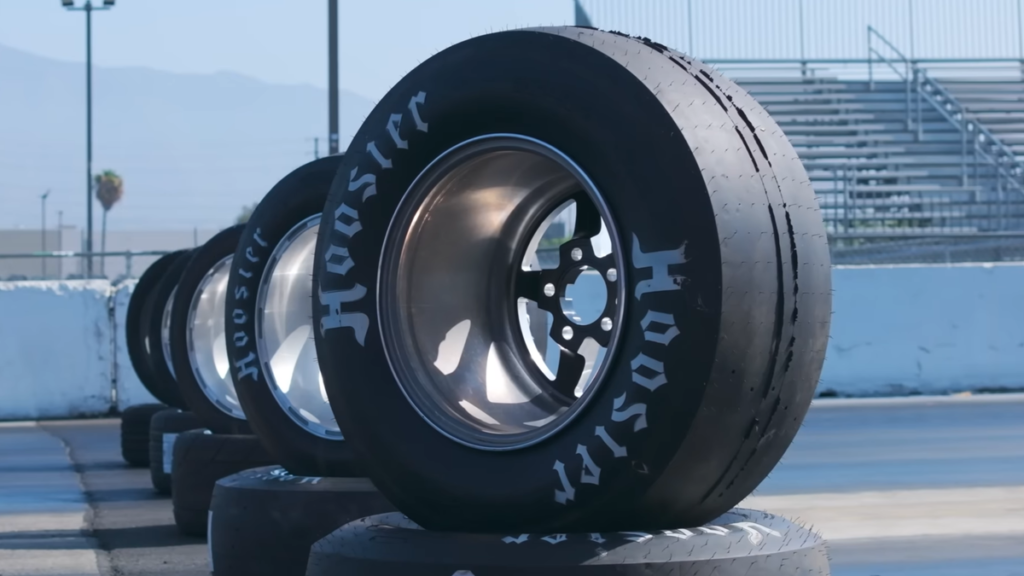How Much Faster Will You Go On Drag Slicks?

One of the most important things to keep in mind when building your car for any kind of motorsport application, the tires are almost always the most important part of your “build.” Well, okay, driver talent is most important, but tires are second. You have to have good tires to build the foundation of your race car, because they’re the only thing that actually touches the ground and if you skimp out there, you might lose the race. In the new season of Donut’s Hi Lo, they’re building Mustang GTs to go drag racing, and starting from the ground up.
Jennifer Tilly’s First Car Was a Beat-Up 1969 Ford Mustang
It’s important to note here that a stock Mustang GT is hardly a traction-limited car, and drag racing is all about traction management. The best way to get off-the-line traction is with a wrinkle-wall drag slick, that’s just a fact. But if you weren’t spinning tires or getting bogged down with traction control, slicks might not help all that much. As you’re about to see.
$1000 vs $9300 Drag Racing Tires | HiLow
If you aren’t familiar with the Hi Lo series, two teams buy two identical cars and one modifies their car with expensive parts, while the other team takes the cheap way out. In this case the high-dollar build is getting bigs and littles on 15-inch wheels, and in order to make 15s fit on a new mustang, it needed smaller brakes. The low-dollar build is making do with 17-inch wheels and significantly less expensive street-legal drag radials.
Old-school drag racers definitely would have run this test using weather corrected numbers to keep things from looking too bad. Because the temperatures were much lower earlier in the day when they set a time on stock all-season performance tires, the slicks and drag radials look less good because they’re running in the SoCal heat in the middle of a triple-digit temperature day.
The fastest run in completely stock condition on a cool summer morning was 8.441 seconds in the eighth mile. That more or less jibes with the Mustang GT’s stock 12.1-second quarter mile in ideal conditions. On a 100 degree day under a dominating sun, the quickest time set on the drag radials was a comparatively not-all-that-impressive 8.431 second time. The traction in the car definitely improved, but not as much as it likely would have if they’d run back to back. So how well did the Hoosier slick tires do on the ’Stang? They tripped the beam with an 8.38 second run in the eighth mile after spending nearly ten grand on wheels, tires, brakes, and spindles.
You can pretty much assume these cars will get much faster in future installments of the series, as they’re probably going to build the engines, do some power-adders, and maybe even nitrous. At that point the slicks will definitely make a bigger difference in putting that power down. For now, gaining just half a tenth in the eighth mile isn’t much to shout about.







